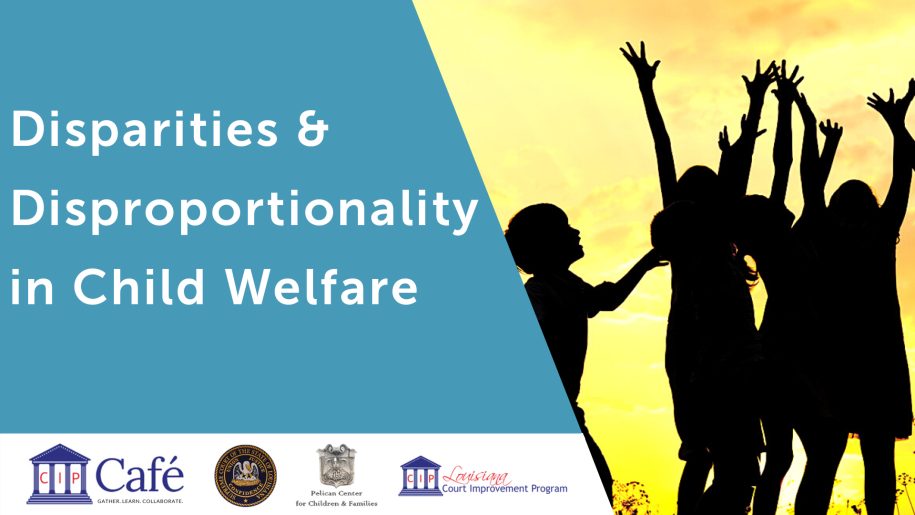Research by national organizations has consistently shown a connection between placement stability and time to permanency. Research also indicates that black children are more likely than white children to experience delays in permanency, especially with multiple placement changes during out-of-home care. This CIP Café will examine placement stability between black and white children during the first 30 days of foster care and possible strategies to improve permanency outcomes.
Speakers:
- Sebastian Del Corral Winder, PsyD, Assistant Professor of Psychiatry & Program Director of LHS, LSU Health – School of Medicine Department of Psychiatry Center for Advance Learning (CALS)
- Amy Dickson, PsyD, Associate Professor of Clinical Psychology, Psychology Section Chief, LSU Health – School of Medicine Department of Psychiatry Center for Advance Learning (CALS)
- Thailund Porter-Green, Esq., Diversity, Equity & Inclusion-Manager, Division of Child Welfare, LA Department of Children and Family Services
- S. Mark Harris, JD, Executive Director, Pelican Center for Children and Families
- Joseph Keegan, LCSW-BACS, Child Welfare Data Consultant-Self Employed
Agenda:
12-12:30pm Data & Research – Influences on Out-of-Home Placements
12:30-12:50pm Recommendations from Research – Improving Outcomes
12:50-1:00pm Questions and Discussion
Objectives:
- Describe four key factors influencing out-of-home placement instability
- Identify three recommendations that can be feasibly applied to improve placement
- Demonstrate the effectiveness of collaboration and cultural awareness in addressing racial disparities in foster care
This training is free and is designed for all judges, private adoption attorneys, adoption agencies, clerks of court, foster parents, district attorneys, nonprofit leaders, social workers, educators, medical/public health professionals, law enforcement personnel, faith-based leaders and child welfare stakeholders.


